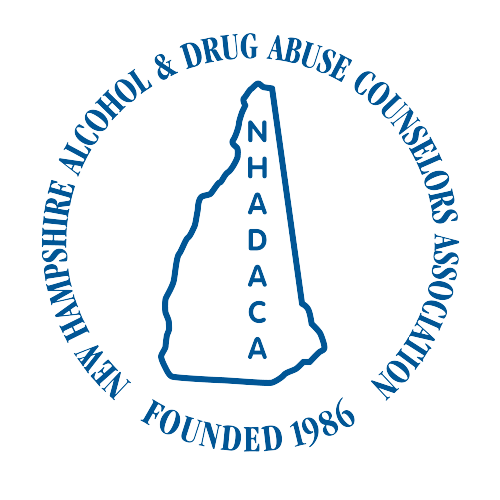Carol Furlong:
Why are you nominating this individual?
I am nominating Carol Furlong, LCMHC, MAC, MBA for the Thomas McTague Lifetime Achievement Award. Carol has spent over forty years providing Behavioral Health services.
In the 1980’s, Carol worked for the Department of the Army with soldiers and their families in Germany, facilitating access to all needed services. Additionally, she worked with military leadership ensuring that soldiers received needed clinical services in the local substance use clinic and personally provided those outpatient services to the soldiers. After her return to the States from Germany, she was asked to return to Europe to provide training to residential program staff regarding the importance of family involvement in substance use treatment, as no family engagement services were provided at that time.
In the late ‘80’s, upon her return to the States, she was the Program Director of a three- “pronged” Partial Hospitalization Program at Brookside Hospital. The three components included a psychiatric PHP, a substance use PHP and a “codependence” PHP, focusing on family members who developed physical ailments resulting from the difficulties/stress of codependence. Carol later became the Clinical Director of The Nashua Hitchcock Clinic BH Department. This clinic provided mental health, substance use, pediatric behavioral health services and psychiatric services. During this time, in the early 1990’s, working closely with the Medical Director of the Milford Family Practice, they developed the state’s first attempt to integrate Behavioral Health and primary care in one setting.
While working in these positions, Carol was employed as the Coordinator of the Multicultural Counseling Program at Rivier College insuring that all students received access and support to educational counseling programs. She was, additionally, an adjunct faculty member at Rivier in the Counseling Program for fifteen years, instructing, mentoring and supporting thousands of students, many of whom have continued to receive her support. Later, Carol was an adjunct faculty at Springfield College’s Counseling Program for approximately five years, continuing her training and support of students/graduates.
In the early 2000’s, Carol was the Director of Outcomes and System Improvement and then Director of Community Support Services at Community Council of Nashua. She pursued and received her MBA in Healthcare Management. In order to ensure the highest quality of care, she began the first attempts to establish a community collaboration model to provide the best community supports and efforts to improve and save lives.
In 2005, Carol began working at Harbor Homes as the VP of Operations. Under her direction, the organization grew from 9 to 42 programs chiefly focusing on the homeless and those with BH needs. These programs included four transitional housing programs for homeless veterans providing case management and wrap around services. With housing throughout the state, under Carol’s direction, veteran homelessness was eliminated in
New Hampshire for several years. Additionally, while at Harbor Homes, Carol established a fully integrated Federally Qualified Healthcare Clinic (FQHC), providing primary care, BH services and dental services for homeless and low-income patients. These services included a mobile van to provide these services. Finally, Carol was initially responsible for starting the Facilitating Organization grant which began to establish RCO’s in NH.
During this time, a local hospital asked for Carol’s assistance in reducing “frequent” homeless visitors to the Emergency Department. As a result, Carol developed a program initiating the first peer support Community Healthcare Worker Program to work with these patients providing wrap around services ensuring connections to primary care, BH, dental services, housing and benefits and any services needed to become “independent”. As a result, the clients did not need to return to the ED and the hospital saved $6 million. Carol was asked to present a national HRSA (Health Resources and Services Administration) webinar detailing the program.
In 2017, Carol developed the SUD Department at Elliot Hospital which included the Hillsborough County Drug Court, a co-occurring IOP, a co-occurring PHP, four primary care MAT programs, SUD services in the ED and the MOM grant. She also developed a comprehensive training program for hospital staff to reduce stigma and a better understanding of addiction dynamics. Before she left Elliot, she had developed the grant for the Center for Recovery Management in Manchester.
Now “retired”, Carol continues to work to improve the lives of others. She is a member of the NHADACA Board of Directors, the Governor’s Opioid Fatality Commission, the Governor’s Commission on Alcohol and Drug Abuse Cooperation and Collaboration Task Force, the Prescription Drug Monitoring Program Advisory Group and recently completed a mentorship with Merrimack High School’s Extended Learning Opportunities program in which she mentored a student wanting to pursue a career in counseling.
Biography:
Carol Furlong retired from Elliot Hospital as a SUD Consultant in December 2023. She has worked in the Mental Health and Substance Use environment for over 40 years. She began her career as a substance use counselor working for the Department of the Army in Germany and continued her Behavioral Health career upon her return to New England. She has developed and managed programs and provided direct care in all levels of care – inpatient, ED, PHP, IOP and outpatient services and created the first SUD Department at Elliot Hospital. Carol strongly believes in integrated care – creating the first integrated BH/Primary care Clinic in Milford, NH in the mid-nineties and a fully integrated Healthcare for the Homeless Clinic that provided MH/SUD and dental services to lower income and homeless individuals. She also initiated a Mobile Healthcare van. Carol strongly promotes addressing all areas that impact in an individual’s recovery – housing, benefits, employment, family etc. As a result, she created four Transitional Living Residences for homeless veterans that eliminated veteran homelessness in 2000-2005. She implemented employment and benefits programs in the medical and housing services that she created/directed and initiated the state’s Facilitating Organization grant which was instrumental in creating Recovery Support organizations.
Carol received her Master’s Degree in Counseling and Family Therapy from the University of Southern California and her MBA in Healthcare Administration from Rivier College. She was an adjunct professor at Rivier College for 15 years and at Springfield College for 4 years. Upon her initial return from Germany, she was asked to return to speak on Codependence and strongly advocated for family components of ongoing treatment. She continues to provide presentations on a number of topics.

